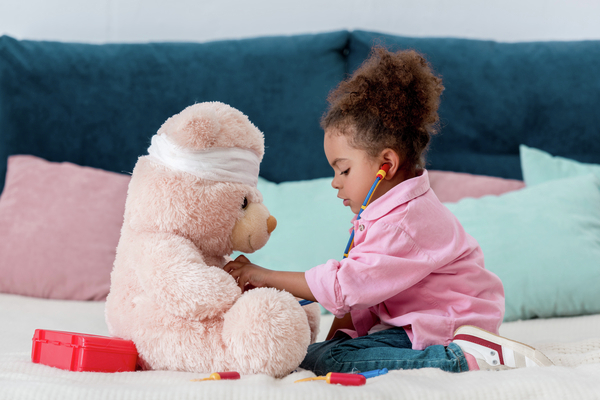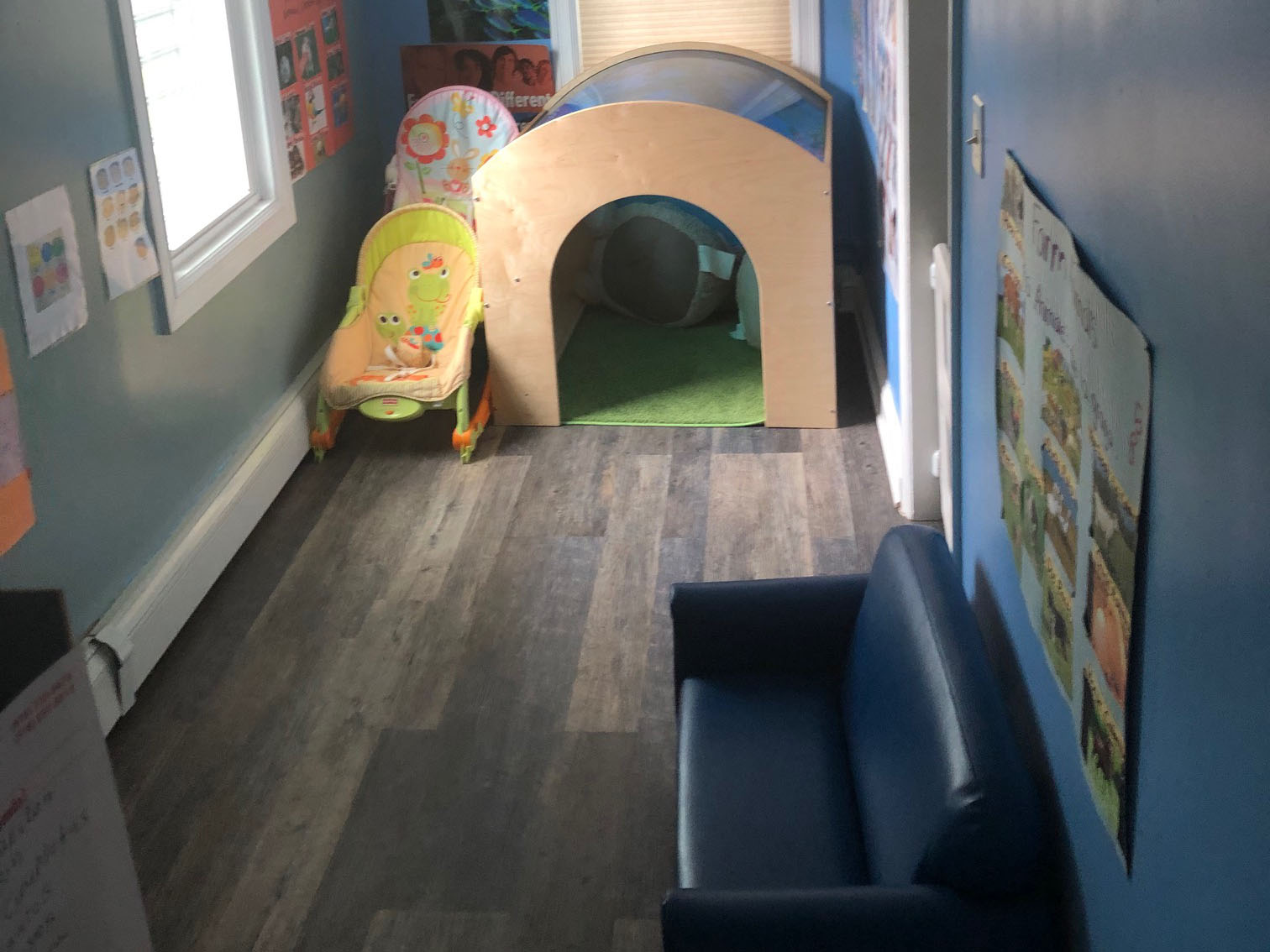Where does formative assessment, the reflective practice of observing and supporting children’s development, fit into the context of remote learning? Educators may have new opportunities for family engagement – ones that could last when children return to the classroom.
As the authentic assessment team at the Institute, our work involves supporting educators to build an assessment practice that is reflective and curious. We encourage educators to be intentional about observing and recording children’s development and learning over time. An integral piece of this practice involves communicating with families. In order to gather a picture of the whole child, including their strengths and interests, educators develop respectful, reciprocal relationships with families.
Although early childhood educators recognize families as experts on their children’s strengths and needs, the current crisis has allowed educators to connect with families in a deeper way. Many educators are now corresponding with families every day. To authentically support educators with this process, our team has created a new resource: A Family Guide to Creating Stories.
This resource is designed for educators to share with families. It invites families to record their memories of this time with their children, through letters, stories, pictures and/or voice recordings.
Our team encourages educators to view and understand children’s development in context — the physical, social, cultural, historical and even sociopolitical settings that shape development. What do these contexts look like for families in your programs as they, we, grapple with a global pandemic? The current crisis has magnified the inequities that exist for vulnerable communities across the nation. Families and children are dealing with varying degrees of stressors and trauma and these realities, as well as families’ resilience in confronting them, may come across the stories that families share with you.
Stories are powerful. The collection of stories, when read back to the child, may help to make more bearable the trauma of this crisis by guiding children to remember and hold on to the bright moments or reflect and share about what was hard.
Consider that families have their own ways of recording memories, whether through storytelling, journals, pictures or notebooks. Stories can come from moments of everyday life. For example a family might take a picture of their children working together to sort and fold the socks. This might be an everyday chore and a memory of family solidarity during the quarantine. The family may share with a trusted educator that they notice their child taking pride in helping and learning how to pair socks, fold and sort them. Importantly, educators can reflect with the family that through these familiar and everyday practices, the child is learning to gain confidence and pride in contributing to the household responsibilities as well as building on their cognitive skills of matching and sorting.
Educators may treasure the love with which family stories were collected and the trust with which they were shared. There is no need to analyze or rate this documentation of children’s development along a continuum. Hopefully, when educators return to the classroom, they will bring a deeper family stories practice back with them.
How has your relationship with families deepened during this crisis? How do you use family stories to better understand children’s development? Share your thoughts and ideas below!




Thank you for this post, it is very informative and the resources are very helpful. Often times we forget the little things or don’t give them the credit they deserve, such as folding socks. Amidst a global pandemic, folding socks becomes even more irrelevant, along with the other little things that are pushed aside. This post helps me remember the importance of the little things, especially in the life of a young child. We, adults, are so used to folding socks, we forget the momentousness of doing it for the first time. But children can help us remember what it was like to discover the world for the first time. Parents should feel encourage to learn more about their children and cheer with them all the small achievements they make, especially during a global pandemic. Parents should look at this as a great opportunity to further build a relationship with their kids through the collection of this little moments. Hopefully others will be as excited about this opportunity as I am.